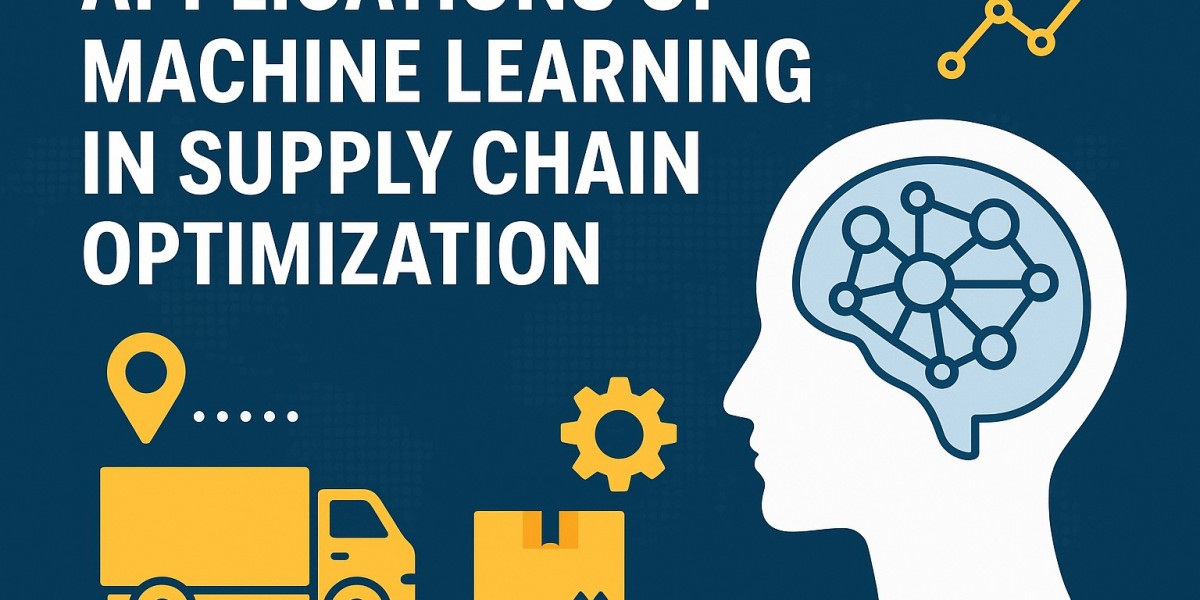In today’s fast-paced global market, supply chains have evolved into highly complex ecosystems. From sourcing raw materials to delivering finished products to customers, businesses face numerous challenges: fluctuating demand, rising logistics costs, supply disruptions, and sustainability concerns. To overcome these hurdles, organizations are increasingly turning to Machine Learning (ML) as a strategic tool to optimize their supply chains.
Why Machine Learning Matters in Supply Chains
Unlike traditional supply chain management systems that rely on static rules and historical averages, Machine Learning brings adaptability, predictive power, and automation. By processing vast amounts of structured and unstructured data, ML algorithms can uncover hidden patterns, make accurate forecasts, and recommend real-time decisions. This agility is crucial for businesses that want to stay competitive.
For enterprises exploring advanced solutions like Machine Learning in Chennai, the potential benefits go beyond just efficiency. Chennai, being a major hub for manufacturing, automotive, and logistics industries, is uniquely positioned to adopt ML-driven supply chain technologies.
Key Applications of Machine Learning in Supply Chain Optimization
1. Demand Forecasting and Planning
One of the most significant applications of ML in supply chains is predicting customer demand with high accuracy. Traditional forecasting methods often fail when faced with volatile market conditions. ML models, however, use diverse data sources such as sales history, social media trends, weather reports, and even economic indicators to deliver precise demand forecasts.
Impact: Reduced stockouts, minimized overstocking, and improved production planning.
2. Inventory Optimization
Managing inventory across multiple warehouses is a balancing act. Excess stock increases carrying costs, while insufficient stock leads to lost sales. Machine Learning algorithms continuously monitor stock levels, supplier performance, and lead times to determine the optimal inventory thresholds.
Impact: Better cash flow, improved customer satisfaction, and leaner operations.
3. Supplier Relationship Management
Choosing and monitoring suppliers is critical for smooth operations. ML can evaluate supplier reliability by analyzing past performance, delivery timelines, defect rates, and even geopolitical factors. This helps businesses build stronger, more resilient supplier networks.
Impact: Reduced supplier risks, stronger partnerships, and better negotiation leverage.
4. Logistics and Route Optimization
Transportation is often the costliest component of supply chains. ML-powered systems analyze real-time traffic, fuel prices, delivery schedules, and weather data to suggest the most efficient routes. These algorithms can also dynamically re-route shipments if disruptions occur.
Impact: Lower transportation costs, reduced carbon footprint, and faster deliveries.
5. Warehouse Automation
Modern warehouses are increasingly adopting robotics and smart systems. ML is at the core of these technologies, enabling automated picking, packing, and sorting. Algorithms optimize shelf placements based on product demand and streamline labor management.
Impact: Increased throughput, lower operational costs, and improved accuracy in order fulfillment.
6. Risk Management and Fraud Detection
Supply chains are vulnerable to various risks—natural disasters, market volatility, or fraudulent transactions. ML models can proactively detect anomalies, predict disruptions, and suggest contingency plans.
Impact: Enhanced resilience, faster crisis response, and greater trust in the system.
7. Sustainability in Supply Chains
Consumers and regulators are increasingly demanding sustainable practices. ML can optimize resource usage, reduce waste, and recommend eco-friendly logistics options. It can also track emissions across the supply chain, ensuring compliance with sustainability goals.
Impact: Greener operations, improved brand reputation, and long-term cost savings.
Benefits for Businesses in Chennai
Chennai has long been a strategic center for industries like automotive, IT, shipping, and retail. The adoption of Machine Learning in Chennai offers several advantages for local businesses:
Automotive Manufacturers: With Chennai often called the “Detroit of India,” auto companies can use ML for demand forecasting, predictive maintenance, and parts logistics.
Port and Shipping Industry: The Chennai Port plays a critical role in global trade. ML can streamline container tracking, optimize routes, and reduce turnaround times.
Retail and E-Commerce Growth: As Chennai becomes a hub for e-commerce logistics, ML can help retailers predict seasonal demands and manage last-mile delivery effectively.
IT and Startups: With a thriving tech ecosystem, startups in Chennai are already developing AI and ML solutions tailored for supply chain needs, creating a dynamic innovation environment.
Future of Supply Chain Optimization with Machine Learning
The future of supply chains lies in creating autonomous, self-learning systems. Imagine a fully digitized supply chain where ML-powered platforms automatically adjust production schedules, reroute shipments, and balance global demand without human intervention.
For businesses in Chennai and beyond, investing in Machine Learning will no longer be optional—it will be a competitive necessity. Early adopters will enjoy the twin benefits of operational efficiency and customer delight, setting themselves apart in crowded markets.
Final Thoughts
Machine Learning is not just transforming supply chains; it is redefining them. From predictive analytics to warehouse automation, ML is enabling smarter, faster, and more sustainable supply chains worldwide. For industries and enterprises in Chennai, this is the right time to explore and invest in ML solutions.
Whether you’re a large manufacturer, a logistics provider, or an e-commerce player, the applications of Machine Learning in Chennai





